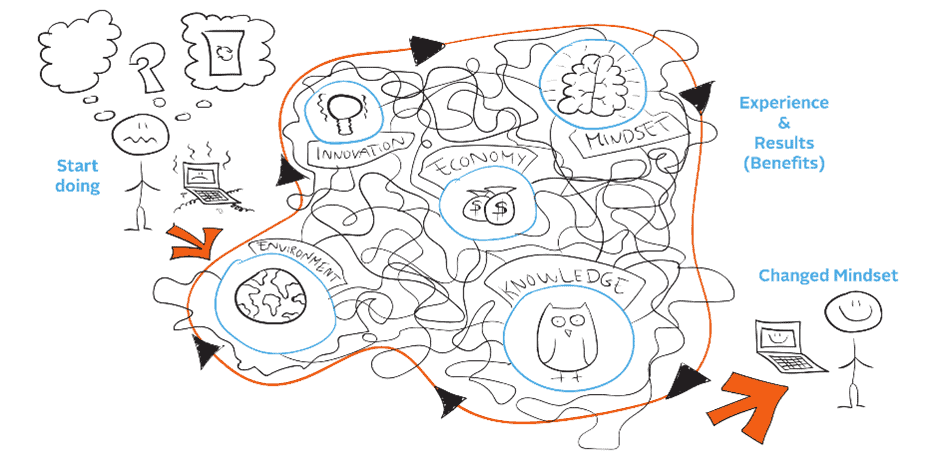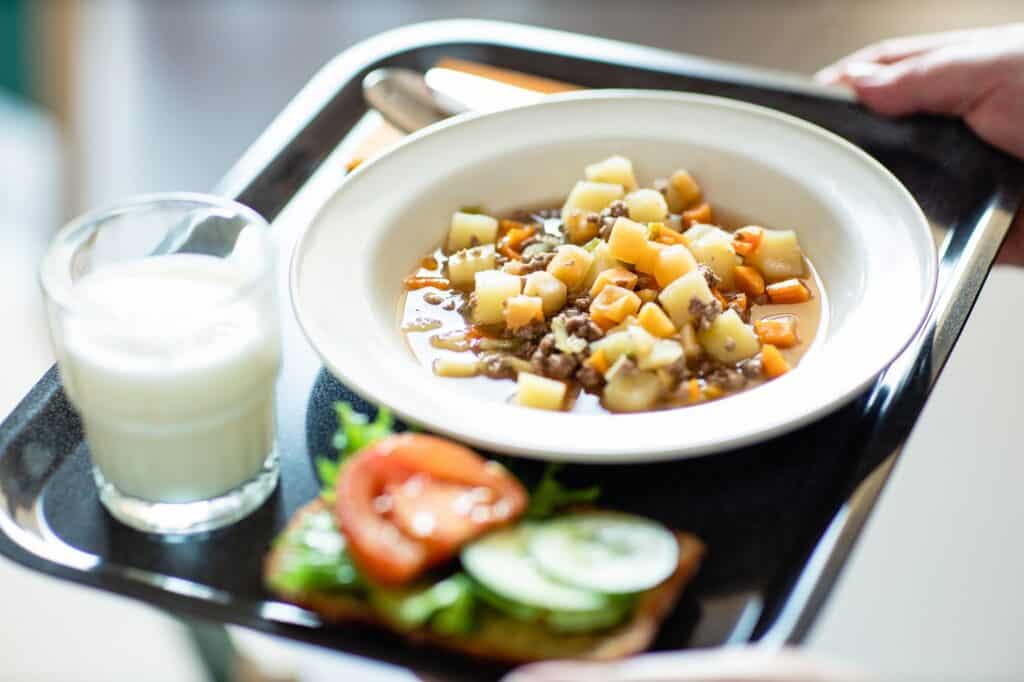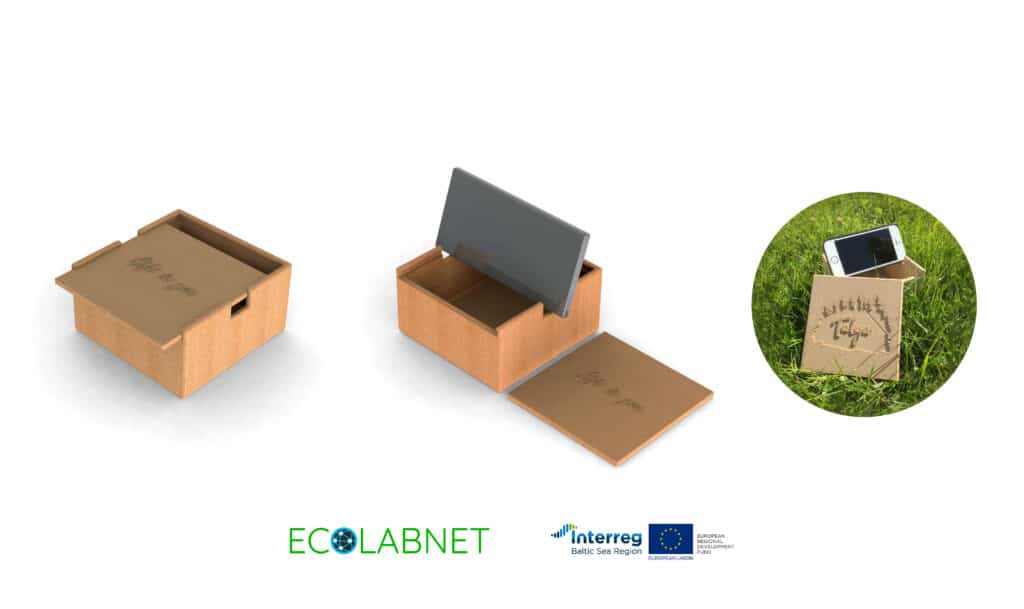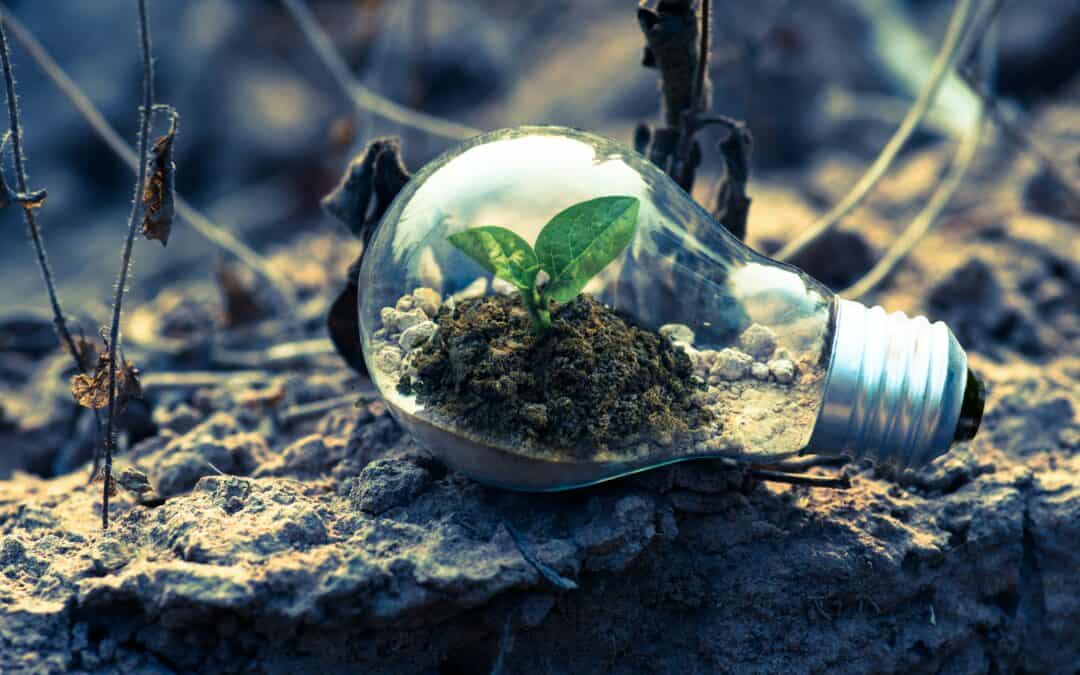Going green with a circular economy is not only necessary to protect our planet and its natural resources, but it is also an opportunity to boost local businesses and create new jobs. This is why this concept is at the heart of our Programme, which already funded several transnational initiatives facilitating the transition from linear to circular resource use.
Circular economy: what is it and why is it important?
Circular economy essentially concerns minimising the use of resources by keeping products and materials in use for as long as possible. The life cycle of products is extended and the harmful effects caused during their production, e.g. by CO2 emissions, are reduced.
The EU generated around 225 million tonnes of municipal waste in 2019, corresponding to 502 kg per person. Even if recycling rates of municipal waste has almost tripled in the period 1995-2019, Eurostat data show that recycling rates differ strongly between European countries. For instance, in the Baltic Sea region, only Denmark and Germany recycled more than 50% of their municipal waste in 2019.
To develop a more sustainable economic system, the European Commission presented its new circular economy action plan (CEAP) under the broader strategy of the European Green Deal in March 2020.
How is our Programme contributing to circular economy?
Interreg Baltic Sea Region truly values sustainable growth and innovation. We encouraged experimentation with new methods to minimise waste, recycle resources and use more innovative approaches in the public and private sectors. Different topics from the management of food waste or food distribution, eco-innovation, to eco-design and circular procurement have been addressed in a variety of projects.
Among those initiatives, some examples of our Programme’s push to bring the Baltic Sea region closer to a circular economy are Circular PP, StratKIT and ECOLABNET.
An innovative procurement model to promote circular economy in the region
 ©City of Aalborg, Circular PP Project
©City of Aalborg, Circular PP Project
Public procurement is the process by which government departments, regional and local authorities acquire works, goods or services from companies. While a traditional model would not address the re-use or recycling of purchased goods or services, a circular approach to public procurement does. It introduces circular economy thinking in calls for tenders based on a close feedback dialogue with all stakeholders of the value chain, namely procurers, suppliers and policy makers.
“When you’re working with circular economy, you manage to lower the amount of waste and use it as a resource. The public sector is a very strong buyer in Europe and it has thus the opportunity of speeding up the process to a circular economy in our continent,” explained Birgitte Krebs Schleemann, project manager of Circular PP.
In this Interreg project, partners from seven countries across the Baltic Sea region analysed 57 calls for tender, which they used as the basis to guide municipalities on how to advance circular procurement locally. Project partners worked to increase supplier awareness and understanding on circular economy, introducing the principles of circularity thinking to all relevant actors of the value supply chain (e.g. public procurers, SMEs and policy makers). Based on this, the project ran five pilots in Aalborg (Denmark), Malmö (Sweden), Plavinas and Smiltene (Latvia).
“One good example was the pilot in the city of Malmö. They have been working with a tender for non-new furniture, meaning that they were buying second-hand furniture or refurbishing the existing ones instead of buying, for instance, new desks or chairs every time. Additionally, they raised awareness among the municipality’s employees on the importance of circularity. They organised an exhibition in the city hall to let people see that second-hand and refurbished furniture looks just as good as new, contributing to accelerate change towards sustainability.”
For the success of these pilots, it was key to cooperate as a transnational team, sharing lessons learned and feedback. “We had really nice cooperation between the three pilot partners from Latvia, Sweden and Denmark. We had regular meetings where we could talk about the next steps, what challenges we were facing and how we developed the pilots and so on. It was really nice to have like an open space for sharing both difficulties and successes.”
Finally, project partners developed several long-lasting resources which can be used by anyone interested in learning and implementing circular procurement like the video below and this “Circular Procurement in 8 Steps Guidance”.
Joint action for greener public catering services across the Baltic Sea region
 ©Finnish Professional Catering Association, photo by Samuel Hoisko
©Finnish Professional Catering Association, photo by Samuel Hoisko
A sustainable public procurement model is also the key to making public catering more circular. “A basic principle is that to build more sustainable societies, you need to have sustainable food systems. It’s very much about balanced nutrition and food security which are based on environmentally sound supply chains. This is a very big task,” said Minna Mikkola, project StratKIT.
The Interreg project StratKIT helped to make procurement of public catering services more sustainable in the Baltic Sea region. First, project partners mapped the current structures of public procurement and catering services in Denmark, Estonia, Finland, Germany, Poland and Russia. “The structural understanding is very important, since this is hardly, let’s say, visible in literature. So, that was crucial for us to learn. Then we developed a framework for a sustainable meal, depicting the structures and the current trends that mark the differences between countries. This clearly tells where the different countries in the region stand in terms of waste prevention and what strategic progress can be made towards increased sustainability.”
Project partners used the collected data to create a sustainability toolkit.
This is easy-to-follow guidance for policymakers, procurement officers, caterers and other stakeholders involved in the provision of public meals to speed up local applications for sustainability. The toolkit contains more than 50 different, pragmatic and detailed tools on how to achieve a more sustainable public meal. “These tools are advice on, for instance, how to support catering personnel in applying a more sustainable approach (Denmark), a campaign to prevent food waste in schools (Estonia), develop organisational strategies for sustainable catering (Finland), procure sustainable catering services (Germany), measure food waste (Poland) and get young people to create a sustainable menu for themselves (Russia).”
StratKIT partners have also developed a network composed of procurers and caterers, policy makers, NGOs and SMEs from the Baltic Sea region and beyond. This will allow to keep working on improving the sustainability of public catering as well as continue exchanging experiences and developing strategies even after the end of the project.
“Nearly all of us have an idea what a public meal looks like, how it tastes, where it is served, but very few people understand how it actually gets provided and that there are a lot of sustainability efforts going on. That’s what we have been making visible in our project.”
Establishing a professional network in eco-product development for SMEs

Investing in sustainable solutions is not only important to protect our ecosystem but is also a key competitive factor for small and medium-sized enterprises (SMEs) that want to keep up with the times. However, access to relevant services and expertise on eco-innovations in the Baltic Sea region has not always been sufficient.
“SMEs have different levels of expertise in eco-innovation. Some of them are kind of born with these eco-innovation values and are highly competent. So, they know how to buy special expertise when needed. However, other companies might not have a high competence level on eco-innovation and need more support. That’s why we kind of started the whole project, to provide support for SMEs,” clarified Miia Lammi, project manager of ECOLABNET.
The Interreg project ECOLABNET developed Digital Collaboration Tool (DCT) to foster cooperation between SMEs, research, development and innovation (RDIs) service providers and intermediary organisations across the region. It is a digital meeting place, where it is possible to get in contact with potential partners or customers and stay updated on the latest trends on eco-innovation. SMEs in manufacturing could need special external expertise and look for the right RDI service provider for example in bio-based materials, eco-product design, eco-branding, value chain assessment. Experts can then support companies in developing eco-innovative solutions.
Some examples of eco-innovations developed through this collaboration between SMEs and experts are bio-based and 3D printed chocolate box as well as a mould for producing boat parts and medical equipment.
“Our tool has a search function that allows you to look for a specific type of expertise or service and see which ones are available. So, it is easier for SMEs to consider what is suitable for their purposes,” added Egidija Rainosalo, RDI Coordinator at the University of Applied Sciences Central Ostrobothnia, in Finland.
As of now, the tool comprises 46 services, 20 organisations and two products. Project partners have also worked on a strategy to ensure that this fruitful collaboration would continue existing after the end of the project, fostering new connections and new forms of cooperation on eco-innovation, making a step towards circular economy.
What are the Interreg Baltic Sea Region’s future plans on circular economy?
Circular economy is one of the key objectives of our Programme for the period 2021-2027. You can find more information here. This means that Interreg Baltic Sea Region will keep supporting new initiatives that tackle pressing environmental challenges like the overexploitation of natural resources. If you want to help our region in the shift from linear to circular resource use, you can find inspiration and possible partners also in our seed money projects. In the circular economy topic, you can find:
• CIRCULARPLACE: upscaling circular economy systems in local communities
• VALUESTREAMS: provide expert and technological support to companies in order to enable them to develop natural products based on local raw materials
• WATERMAN SEED: circular approaches to reducing outflows of nutrients and hazardous substances to surface water, groundwater and the Baltic Sea
Article by Luca Arfini, Managing Authority/Joint Secretariat of Interreg Baltic Sea Region



